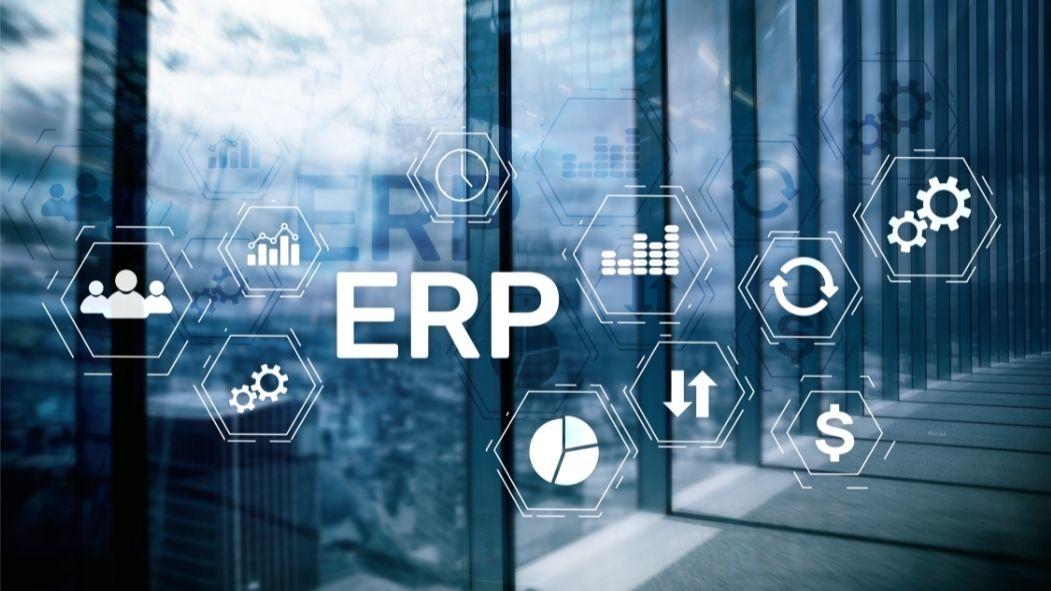CRM and ERP software can greatly benefit all businesses large and small. Sometimes when thinking about them there is confusion about what each does. In this blog we will point out the relationship between CRM and ERP and the focus of each software. We will also answer the question about which is more important for a business.
Before we start, let’s make three statements about CRM and ERP to frame the discussion.
CRM is focused on the “front office” of a business.
ERP is focused on the entire business, including the “back office.
CRM is a subset of ERP.
Hopefully, that will help to explain the difference between CRM and ERP and start to put things in perspective.
Relationship of CRM and ERP
ERP stands for Enterprise Resource Management. CRM stands for Customer Relationship Management. ERP can be thought of as an umbrella over an entire business, CRM is covered by that umbrella. When we think about ERP, we typically think about all the back-office functions it manages. When we think about CRM, we think about all the front office functions it aids and manages. We can think about CRM being primarily concerned with increasing and improving revenues, and ERP being focused on increasing and improving profitability. There are 5 main pillars to an ERP system that include Financial Accounting, Distribution & Supply Chain, Manufacturing & Operations, Human Resources and finally Sales, Support and Marketing which is addressed with CRM. CRM is deployed at a wider range of customers and has more SMB and SME organizations using it. ERP is more commonly deployed at larger corporations. ERP came on the scene first, and pre dates CRM.
Focus of CRM and ERP
Thinking of CRM as being the front office tool and ERP the back office and all-encompassing enterprise software platform is helpful. This framing becomes even more clear when we think about the main functions for CRM vs ERP. CRM main functions include Contact Management tools, Sales Forecasts and Pipelines, Helpdesk Support and Ticketing, Marketing Campaigns, and Sales Data and Analytics.
ERP main functions include Supply Chain Management, Order Tracking, Accounting & Finance, and Human Resource and Payroll Management. One of the biggest advantages of both ERP & CRM is that they use a common database across an entire business so that all employees are working with and updating the same information in real time. The common data base also explains why ERP sprang from companies that were primarily focused on databases.
Various ERP and CRM platforms have different strengths. All ERP platforms have an element of CRM contained within them; however, most ERP software strengths lay in one or more of the back-office functions or their umbrella nature. CRM providers typically have different strengths and might be better at customer support, marketing or sales support capabilities.
CRM providers are newer and embraced cloud platforms first. CRM providers also have added ERP functionality over the last decade plus. Two CRM vendors that excel at all aspects of CRM and are also providing ERP modules are Salesforce and Zoho. At Valenta we work with both these providers. An example of an ERP vendor which we work with that is well rounded across all aspects of ERP and CRM would be Microsoft with their Microsoft Dynamics solution.
Which is better for my business, CRM or ERP?
When thinking about CRM vs ERP there is no correct answer to which is better for a business … both are good for any business. What is true however is that CRM is typically less expensive than ERP. What is also true is that before profits can be maximized, revenue or sales must be made. It is for this reason that if we had to pick one, or recommend that a business start with one, it would be CRM.
CRM is more commonly deployed than ERP. CRM is more widely deployed by SMB and SME organizations. ERP is predominantly deployed at larger and some mid-sized enterprises. All this is not to say that SMB and SME can’t benefit from ERP. One business software trend that we are incredibly pleased with is that excellent CRM vendors like Zoho and Salesforce are now offering ERP modules.
It is easier for companies like this to move upstream than legacy providers like SAP and Oracle to move downstream. Zoho and Salesforce have also brought cloud based and commercially flexible solutions to ERP … this is a great match for the SMB clients we serve.
Want to get started?
Hopefully, we have brought some clarity to questions about differences between CRM and ERP. CRM vs ERP is not a discussion about one being good and one not being good for a business. Both are excellent for a business. However, if a business has limited budgets to invest in these types of tools, it is best to start with CRM and then go and grow from there.
If you would like to read more about CRM, please check out our blog “What is CRM?”
If you would like to read more about ERP, please check out our blog “What is ERP?”
Valenta is a business consulting and business software integration services provider. We focus on serving small and midsized businesses. We provide the same services large consulting firms offer to Fortune 1,000 to these underserved but economically vital businesses. Valenta provides offshore or near shore virtual staff in addition to consulting and software integration services and can provide virtual CRM & ERP Administrators for SMB CRM & ERP implementations.
If you would like to get in touch on this topic or any others, please reach out here.


